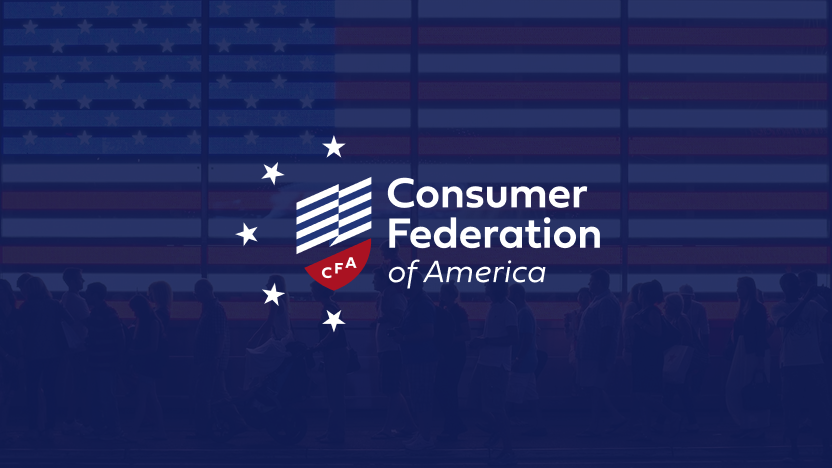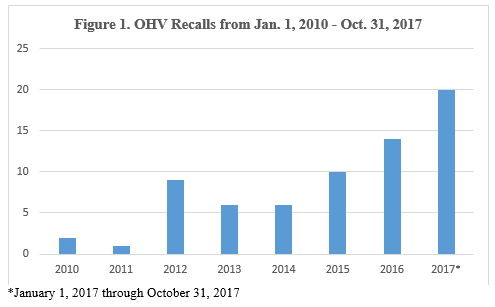Increasing Number of Off-Highway Vehicles Recalled Due to Safety Concerns

Washington - Today, Consumer Federation of America released an analysis of off-highway vehicle (OHV) recalls conducted by the U.S. Consumer Product Safety Commission (CPSC) and the manufacturer of the vehicle. OHVs include all-terrain vehicles (ATVs), recreational off-highway vehicles (ROVs), and utility task vehicles (UTVs). CFA analyzed CPSC OHV recall announcements from January 1, 2010 through October 31, 2017.
“We did this analysis to understand whether there were more OHV recalls more recently and why these recalls are occurring,” stated Rachel Weintraub, legislative director and general counsel of Consumer Federation of America. “We found that more OHV recalls have been occurring more recently.”
The CFA analysis found that in 2017 there were a total of 20 recalls—the highest number of recalls in a single year during the period analyzed. In 2016, there were 14 recalls, and in 2015 there were 10 recalls, the second and third highest number of recalls in a single year during the period analyzed. In total, CFA identified 68 recalls in the period studied.

While OHVs have been recalled for numerous reasons, CFA identified some patterns. For example, looking at the entire period, the top three hazards responsible for the recalls were broadly related to fuel, steering, and throttle issues.
Of the 68 recalls:
- Fuel-related hazards were the most common reason for a recall, resulting in 15 recalls (22%).
- Steering hazards were the second most common, resulting in 9 recalls (13%).
- Throttle hazards were the third most common hazard, resulting in 8 recalls (12%).
“We urge the CPSC to investigate why the number of OHV recalls are increasing and take steps, along with OHV manufacturers, to prevent these tragedies and improve the safety of these vehicles.”
Contact: Rachel Weintraub, 202-939-1012
Our Subject Matter Experts

Courtney Griffin
Director of Consumer Product Safety
Press Releases

Trump’s CFPB Once Again Harms Servicemembers

Anti-Competitive State Laws Cost New Car Buyers More Than $20 Billion Per Year

Congressional Proposal Does Little to Protect Consumers from Unknowingly Purchasing Wrecked Cars
